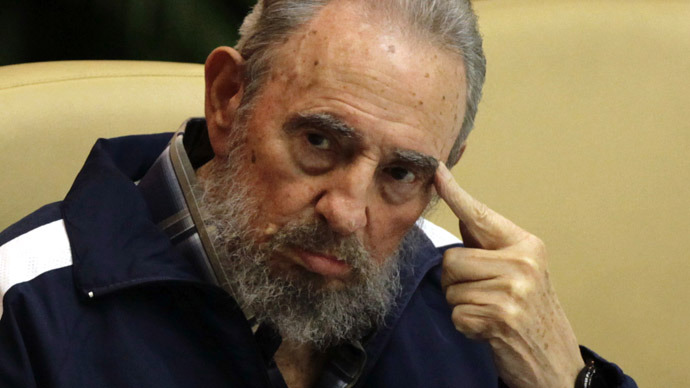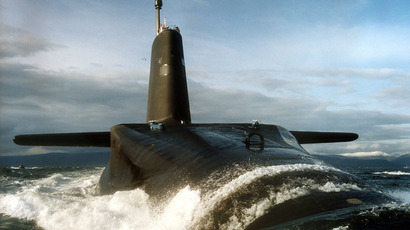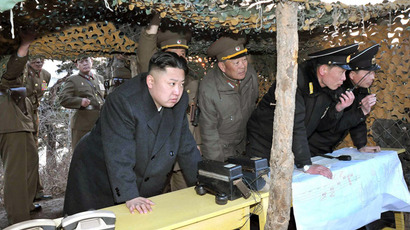Fidel Castro labels N. Korean crisis ‘absurd,’ urges restraint

The leader of the Cuban revolution Fidel Castro has urged North Korea and the USA to avoid confrontation and warned that if a war broke out on the Korean peninsula it would affect over 70 per cent of the planet’s population.
As the North Korean nuclear stand-off continues, the 86-year-old Communist icon and former President Castro blasted “the gravity of such an incredible and absurd event” in the region which is home to five out of seven billion people living on Earth.
A war in the region would result in “a terrible slaughter of people” in both North and South Korea and neither of them would benefit from it, Fidel Castro wrote in an article in Cuban Granma newspaper, cites AFP.
Now that Pyongyang has “has demonstrated its technical and scientific advances, we remind them of their duties with those countries that have been their great friends,” the Cuban leader pointed out.
The Comandante believes that the “duty” to avoid the violence is also in the hands of the White House and the American people. In case of a war, President Barack Obama would turn into “the most ominous leader” in the history of the country, Castro added.
In the Cuban leader’s view, the current situation on the Korean Peninsula poses the most serious threat of a nuclear war since the Cuban Missile Crisis in 1962 – a two-week confrontation between the Soviet Union and the United States over placing nuclear missiles on the Caribbean island.
Castro, who stepped down as president in 2008 due to health problems, handing power to his brother Raul, still remains influential in Cuba as well as with Communists around the globe. He occasionally writes a column titled "Reflections of Comrade Fidel" published in the state media. The post on the North Korean crisis is the first one since June 2012.
Tensions on the Korean peninsula have been soaring over the past several months, prompted by the republic’s long-range rocket-launch in December and its February nuclear test, leading to fresh UN sanctions against Pyongyang. UN-South Korean military drills in the region only added fuel to the fire, with the North issuing a series of threats of nuclear war.
On Friday, Pyongyang asked foreign embassies to consider evacuation from the republic amid growing tensions. According to the British Foreign Office, the DPRK said it will be ‘unable to guarantee’ safeties of embassies and international organizations after April 10.
The Russian Foreign Minister Sergey Lavrov pointed out that for now it was just “a proposal” rather than a request. Moscow is examining the situation, but is not planning to evacuate diplomats yet.
“We are deeply concerned over the aggravation – verbal so far - of tensions,” Lavrov said on Friday. “We want to understand the reasons behind such a decision,” he told journalists.














